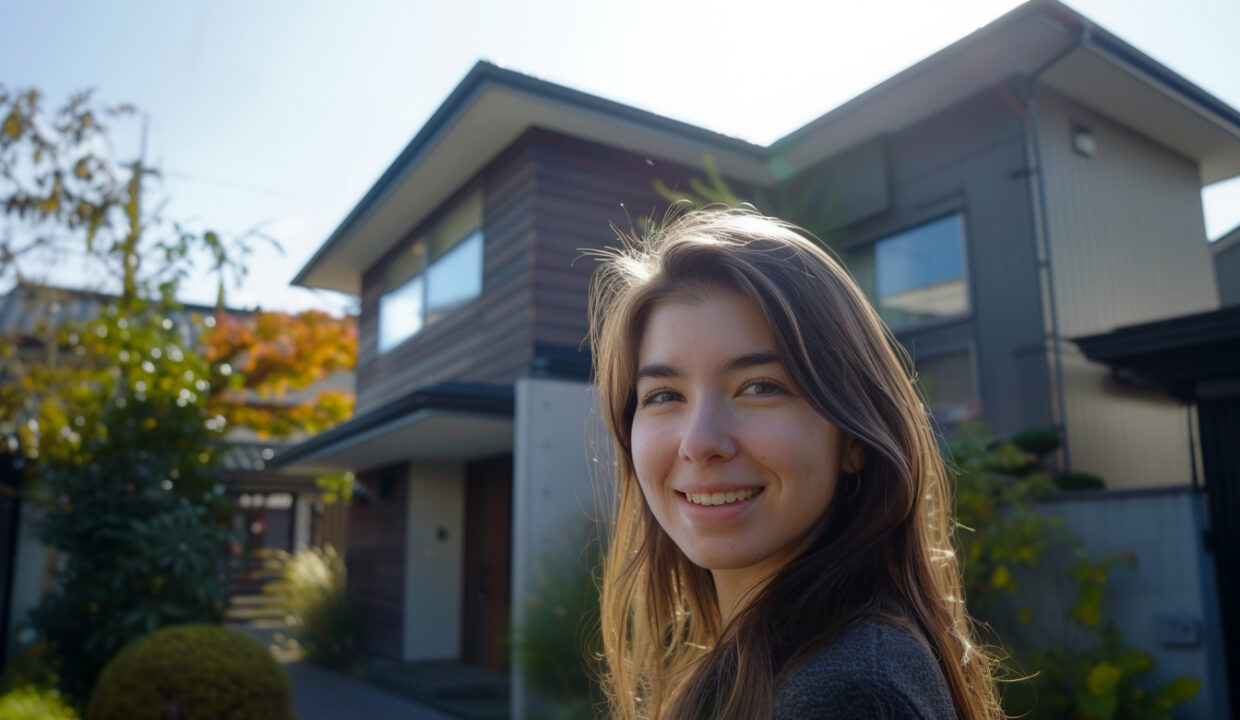
Some popular myths and misconceptions about real estate in Japan tend to follow three main themes, including the belief that discrimination against non-Japanese foreigners may limit choice, pricing, and whether residential property is durable enough to withstand Japan’s relatively frequent natural disasters.
While there is, of course, an element of truth in all of these misconceptions, it is possible to dispel most of them.
1. It’s Difficult for Foreigners to Purchase Real Estate
False. Foreigners can buy property in Japan with almost the same rights as Japanese citizens, regardless of their residency status or visa type.
There are no special requirements or taxes for foreigners. However, language can be a barrier, as most sellers do not speak English, so knowing Japanese or using a real estate agent who caters to foreigners may be necessary, albeit at a premium.
Non-resident foreigners may be required to pay 20% of the property value in cash, especially if they do not have a work visa for Japan. While there are no legal restrictions on foreigners buying property in Japan, documentation during the process is usually in Japanese, with translations provided for reference only.
However, some condominium buildings may have rules restricting the sale of units to non-Japanese residents, known as “gaijin bans” or “foreigner bans,” although these are becoming less common.
Under the Foreign Exchange and Foreign Trade Act, foreigners are generally prohibited from purchasing land designated as “forest” or “agricultural” without permission to protect the environment and ensure proper land use.
Non-residents of Japan are free to purchase and lease property, including land, without residency requirements. However, they must notify the Japanese government within 20 days of purchase. Spouses of Japanese citizens or long-term residents may earn income from real estate.
Different visa categories have different rules for earning rental income. Foreigners can legally rent out their property in Japan on a short-term basis, such as through Airbnb, if they comply with the relevant private lodging laws. Condominium agreements may restrict short-term rentals.
2. It’s Difficult as a Foreigner to Obtain a Mortgage
Not necessarily. Foreigners can obtain mortgages in Japan, but the process and requirements vary depending on the financial institution. Here are some key points to keep in mind:
- Permanent Residency: Permanent residency in Japan is preferred when applying for a mortgage from a Japanese financial institution. However, some institutions offer loans to non-permanent residents under certain conditions.
- Eligibility Criteria: Typical requirements include being between the ages of 20 and 65, having a stable income for at least one year as a full-time employee or two years if self-employed, and being able to provide group credit life insurance.
- Spousal Guarantor: If the applicant’s spouse is a Japanese citizen or permanent resident, they can act as joint guarantors for the loan.
- Language Requirement: Some banks may require applicants to have a certain level of proficiency in Japanese.
- Down Payment: Applicants are usually asked for a down payment of 10% or more of the property price.
- Employment Stability: Applicants are usually required to have worked for the same company in Japan for more than 1-3 years.
- Income requirement: Minimum annual income usually ranges from 2 to 5 million yen (approximately US $13,300 ~ $33,200) or more.
- Loan Amount and Age Limit: Loan amounts can vary between institutions, with age limits typically set between 75 and 80 years old at final repayment.
- English Support: Some banks, such as Shinsei Bank and SMBC Prestia, offer English-language services for foreigners applying for mortgages.
3. It’s Difficult for a Foreigner to Get an Apartment
Not necessarily. If you have a proper visa and a job, getting an apartment in Tokyo is not as difficult as it is often made out to be.
However, foreigners in Japan may encounter certain obstacles when renting property, often due to language barriers and a lack of established financial history in the country, which can become particularly challenging during the screening process shortly after relocating to the country.
While some properties may not readily accept foreign tenants, those listed on our website TokyoPortfolio.com are guaranteed to be foreigner-friendly, eliminating the guesswork and making your search for the perfect home in Tokyo stress-free.
Additionally, listings advertised in English on some real estate portals generally indicate a readiness to accommodate foreign tenants.
4. Japanese Real Estate Decreases in Value
Not necessarily. First, it is important to distinguish between the value of the land and the combined value of the land with a structure built on it, or “real property.”
This includes the land and everything permanently attached to it, as well as the rights associated with ownership of the property. Especially compared to other developed markets such as the U.S. and Europe, the value of the structure built on land in Japan tends to depreciate overall and rather rapidly.
Depending on the desirability of the location, the underlying value of the land itself tends to maintain or even increase in value.
Ultimately, the old adage “location, location, location” rings true when it comes to the value of Japanese real estate. While the value of new condominiums in central Tokyo is now at record levels, land prices in Japan’s countryside remain depressed.
In fact, the total value of land across the country is still well below levels seen at the height of the “bubble era” in the late 1980s. During that period, rapid increases in both stock and land prices fueled a sustained economic boom.
During the bubble period, land prices skyrocketed, and the myth that land prices would always rise was propagated by the mass media, leading many ordinary people to become real estate speculators.
After the “Plaza Accord” in 1985, the yen appreciated much faster than the Bank of Japan had expected, plunging the country into recession. As a countermeasure, the government implemented a policy of low interest rates, which led to a surplus of investment funds that flowed not only into the stock market but also into the real estate market, causing land prices to soar.
From 1986 to 1990, asset values for both stocks and land rose dramatically. For a while, the conventional wisdom was that “land prices will never go down” and “if you own land, you will never lose money.” Banks continued to offer loans secured by land as collateral.
Fueled by the mass media, it seemed for a while that everyone was becoming a land speculator. Soon after the Tokyo Stock Exchange reached its highest level of the bubble economy in late 1989, the bubble burst. Restrictions were placed on loans for the purchase of real estate, and controls were placed on overall lending to curb the skyrocketing land prices.
Both stock and land prices began to fall sharply, bringing the bubble era to an end. Although it took 34 years, the Tokyo stock market recently surpassed its peak at the end of 1989, but overall land prices are still 40% below their peak.
During the bubble era, land speculators aimed to make money from the profit on the sale of land, but after the collapse of the land myth, most investors aim to earn stable rental income over the long term.
While there will always be certain exceptions (e.g., specific developments in central Tokyo, the Niseko ski resort in Hokkaido, etc.), it is highly unlikely that Japan will ever again see widespread land price increases like the extraordinary gains of the bubble era.
5. Property Values Are Too Expensive
Not necessarily. Property values in specific neighborhoods in Tokyo are indeed considered expensive. Factors contributing to high prices include a surge in investment, low supply, rising construction costs, a weak yen, inflation, and a unique demographic shift with urban migration increasing demand for housing.
The average price of a new condominium in central Tokyo rose 60% to a record 129.6 million yen (approximately US$861,000), making Tokyo the second most unaffordable city in the world.
Despite the high prices, Tokyo’s real estate market remains attractive due to Japan’s loose monetary policy, favorable lending conditions, and stable investment environment.
While central Tokyo commands sky-high prices, more affordable options can be found in the suburbs and surrounding regions. Despite recent fluctuations in Japan’s housing market growth,
Tokyo’s property values have remained relatively stable and are expected to continue rising. A shortage of supply, exacerbated by a lack of new construction, has contributed to high prices.
6. Purchasing an Abandoned Home Is a Good Deal
Not necessarily. Akiya, which are vacant or abandoned houses in Japan, can be a good deal for those on a budget, with prices often under $100,000 and even under $50,000, especially in rural areas. However, it is crucial to consider several factors before buying an akiya, including the following:
- Property Condition: Evaluate the condition of the home for issues such as structural damage, pest infestation, and mold growth.
- Location: Consider the surrounding area, nearby amenities, access to public transportation, and the local real estate market to determine the value of the property.
- Legal and Title Issues: Ensure there are no legal issues associated with the property by reviewing the legal documents and title records.
- Renovation Costs: Renovating an akiya can be expensive, sometimes costing 3 to 5 times the purchase price for a complete overhaul.
- Access to Services: Check the availability of essential services such as water, electricity, gas, sewer connections, and lifelines such as supermarkets and hospitals.
7. The Risk Posed by Natural Disasters Is High
Not necessarily. Concerns about earthquakes, tsunamis and other natural disasters affecting real estate investments in Japan are common. However, modern construction practices have made buildings earthquake-resistant, and investing in well-maintained older buildings can minimize risks.
Nevertheless, Japan is expected to experience major earthquakes in the future, including the Tōkai earthquake and a potential megaquake from the Nankai Trough. The Tōkai earthquake is expected to occur in the near future along the trench near Suruga Bay with a magnitude of about 8, causing severe damage from strong shaking and tsunamis.
Experts predict a 70% chance of an 8-9 magnitude quake from the Nankai Trough within the next 30 years, potentially causing significant casualties and destruction.
Despite seismic safety measures, Tokyo remains vulnerable to earthquakes and other natural disasters such as flooding due to its geographic location along the active Pacific Ring of Fire.
8. Most Properties Are Constructed with Wooden Frames
False.
While traditional wooden houses were once common in Japan, most properties now use earthquake-resistant reinforced concrete structures, making concerns about the ability to withstand earthquakes obsolete.
9. Properties Built After 1981 Pose Less Risk
Not necessarily. Japanese building codes were strengthened in 1981 to better withstand earthquakes. This change was prompted by the 1978 Miyagi earthquake, which led to the introduction of the “shin-taishin” or New Earthquake Resistant Building Standard Amendment.
This amendment focused on preventing building collapse during earthquakes and ensuring the safety of occupants by requiring buildings to sustain minimal damage and continue to function normally during earthquakes of magnitude 5~7. Buildings constructed to this new standard are known as “shin-taishin”, while those built before 1981 are known as “kyu-taishin”.
However, it is impossible to predict the effects of an earthquake, even on modern structures. The condition of a building also depends on how well it has been maintained.
10. Properties Have Just a 20 Year Lifespan
False. The 20-year figure is based on tax depreciation, not the quality of the property. Properly maintained properties can last much longer.
These myths and misconceptions highlight the need for thorough research and understanding when it comes to real estate in Japan.


